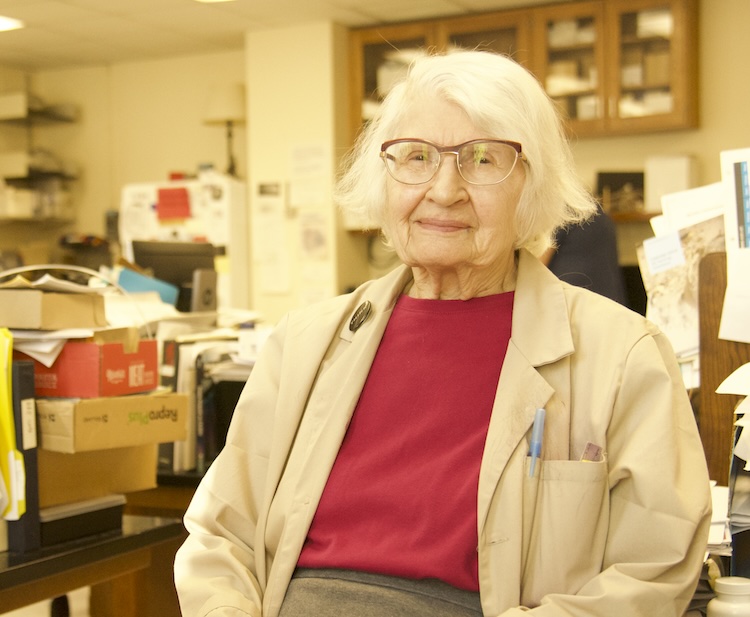Mary Hamilton, Ph.D., FAC

Professor Mary Hamilton started her science career by attending the University of Buffalo, earning her bachelor’s degree in chemistry in 1947, before she continued her education at Brooklyn Polytechnic, where she earned her master’s in physical chemistry in 1950. Shortly thereafter, she married her husband, a history major. Her next move took her to Memorial Sloan Kettering Cancer Center (MSKCC), where she worked as a research assistant with Mary L. Peterman, Ph.D., a renowned biochemist, who was known for her seminal work on the discovery and characterization of animal ribosomes. Mary often referred to Peterman as the “mother of the eukaryotic ribosome”.
Following several years of productive research in the Peterman lab, where Mary co-authored several papers, Professor Hamilton was accepted into the Division of Biochemistry in the Cornell University Graduate School of Medical Sciences, where she completed her Ph.D. in biochemistry in 1961, studying the structure of rat liver ribosomes. She then spent two years as a postdoc researcher in London studying viruses before returning to MSKCC, where she advanced from research associate to associate member.
In 1982, Mary moved to Fordham College at Lincoln Center as a professor in the Division of Science and Math (now the Department of Natural Sciences). There, Mary worked ardently right up to the COVID-19 pandemic, researching proteins in marine animals.
Over the years at Fordham, Mary has collaborated with many faculty, most notably Professor Theodore Herskovitz from the Department of Chemistry, which resulted in the publication of 18 papers dedicated to molluscan hemocyanins, and Professors Mark Botton and Grace Vernon, both esteemed members of the Department of Natural Sciences.